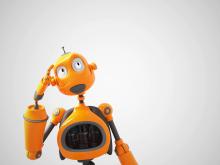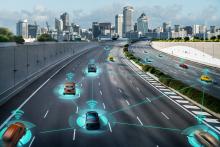- Read more about SMU PDLS: The Digital Cities of the Future: How can we embrace, engage and thrive?
- 885 views
Over the past few decades, with the rise of the Internet and now, the metaverse, navigating the seemingly endless deluge of options online feels almost like a full-time occupation.
From e-commerce to music and movie suggestions, recommender systems are responsible for powering our on- and off-line activities: from Amazon’s product recommendations, restaurant suggestions and Facebook’s newsfeed personalisation, to movies to watch — handpicked by Netflix’s Recommendation Engine.
It’s a fine balance in the world of shipping. Risks – physical and cyber – are part and parcel of the ‘cargo’.
In the 1940s, mathematician Jon von Neumann and economist Oskar Morgenstern developed game theory, a technique used to analyse complex situations. Much like the centuries-old chess game, game theory abides by the principles whereby your moves are directly affected by that of your opponent.
At the recent World Expo 2020 in Dubai, SMU Assistant Professor of Computer Science Arunesh Sinha shed light on the importance of game theory in analysing modern-day situations during his presentation, Real World Decision Making using Game Theory.
Understanding how real-time data can help with predicting passenger behaviour and reduce commuter wait time on the last mile journey
It might be an ambitious aspiration, but by 2030, Singapore hopes that 75 per cent of all peak-hour commutes will be conducted through public transport.
This vision of future urban mobility centres on fostering a ‘car lite’ society, where a smart, multi-modal public transportation infrastructure offers commuters an affordable and convenient alternative to private car usage.
In recent years, blockchain technology has been hailed as a breakthrough disruptor, poised to drive innovation in virtually every industry ranging from legacy organisations to game-changing start-ups in the new digital economy. This revolutionary technology stems from the ability of blockchain to act as a decentralised distributed ledger. It promises more secure real-time transactions and record-keeping, making it harder for important data to be manipulated or falsified.
There is a reason why engineers and designers provide machines with the semblance of friendliness, but it takes more than that to establish trust between AI and humans.
I was at Promenade MRT Station waiting to travel to work, when my attention was drawn to a little boy pointing at a cleaning robot moving in my direction. It was making comforting gurgling noises, its eyes were blinking gently and soft music accompanied its movements.
"Look at its smiley face!" said the boy and we all boarded the driverless train without a worry.
Autonomous vehicles (AVs) are becoming an increasingly popular mode of transport, and their legislation have to quickly evolve to accommodate this rising movement. As autonomous vehicles become more prevalent, it's important for legislators to keep up with the latest developments in order to create smart policies that will benefit their constituents.








